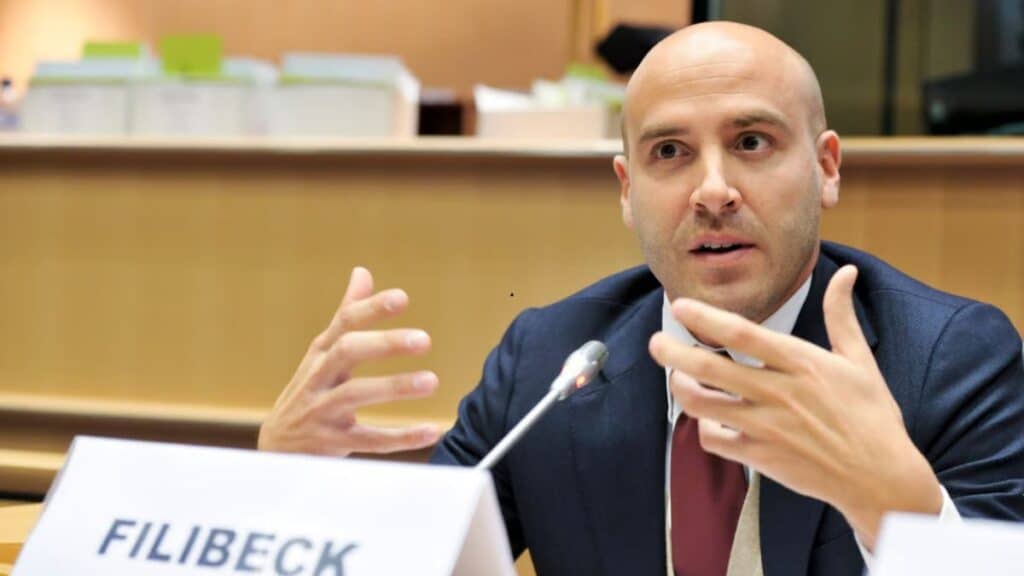Giacomo Filibeck, the secretary general of the Party of EU Socialists (PES), has issued a stern warning that his party will not support centre-right European People’s Party (EPP) if it allows far-right factions to shape the agenda for the next mandate.
Following the recent European elections, where the EPP emerged as the largest party, Ursula von der Leyen is in a strong position to seek a second term as the President of the European Commission. However, Filibeck emphasized that von der Leyen cannot depend on support from the centre-left if she continues to align with extreme right-wing groups.
To secure a second term, von der Leyen must receive a nomination from the EU’s 27 leaders and obtain the approval of an absolute majority of 361 newly-elected MEPs. The Socialists and Democrats (S&D) group, which could provide up to 135 votes, holds significant sway in this process.
“If during negotiations we see that ECR or ID are influencing the priorities for the next five years, then we, as socialists, democrats, and progressives, will not participate,” Filibeck stated.
He added that the PES would be open to collaboration with the green parties instead, emphasizing their willingness to welcome their support and contributions.
Despite gains by the European Conservatives and Reformists (ECR) and Identity and Democracy (ID) in the recent elections, pro-European centrist parties maintained a majority, alleviating some concerns about a far-right surge.
Early signals from the EPP suggest a preference for traditional mainstream alliances, yet they have not ruled out cooperating with certain far-right elements on specific issues. This stance has raised alarms among centre-left factions.
Filibeck stressed that the PES seeks clear commitments from the EPP that it will not form ad-hoc alliances with right-wing forces before offering their support to reappoint von der Leyen.
“There cannot be an institutional majority to elect the Commission President, followed by a political majority that cherry-picks policies to create an alternative agenda,” Filibeck said. “Supporting the next Commission mandate means agreeing on clear priorities.”
Historically, legislation in the European Parliament has passed due to a grand coalition of the three mainstream centre parties, with the Greens supporting this coalition in the last mandate.
However, recent tensions have surfaced between the EPP and its traditional allies, especially over key environmental legislation, such as the proposal to restore 20% of the EU’s land and seas by 2030, part of the European Green Deal championed by von der Leyen.
Leading up to the elections, von der Leyen expressed a willingness to work with certain pro-European, pro-Ukraine, and pro-rule of law members of the ECR.
Insiders within the EPP indicate that lawmakers from Italian Prime Minister Giorgia Meloni’s Brothers of Italy and Czech Prime Minister Petr Fiala’s Civic Democratic Party (ODS) are viewed as potential partners for the upcoming term.
This approach has sparked concerns among centrist and left-leaning factions that von der Leyen is eroding the barriers that have historically kept far-right influences in check at the EU level.
“What is unacceptable to us is the EPP’s ambiguity throughout the campaign, and to some extent von der Leyen’s stance in public debates when she hinted at potentially opening up the coalition to other forces,” Filibeck explained.
EPP-affiliated parties have already formed governments or signed agreements with far-right parties in countries like Italy, the Czech Republic, Sweden, and recently, the Netherlands. Additionally, on Tuesday, the president of the EPP’s French member party sparked controversy by expressing willingness to ally with the French far-right ahead of the upcoming French legislative elections.
